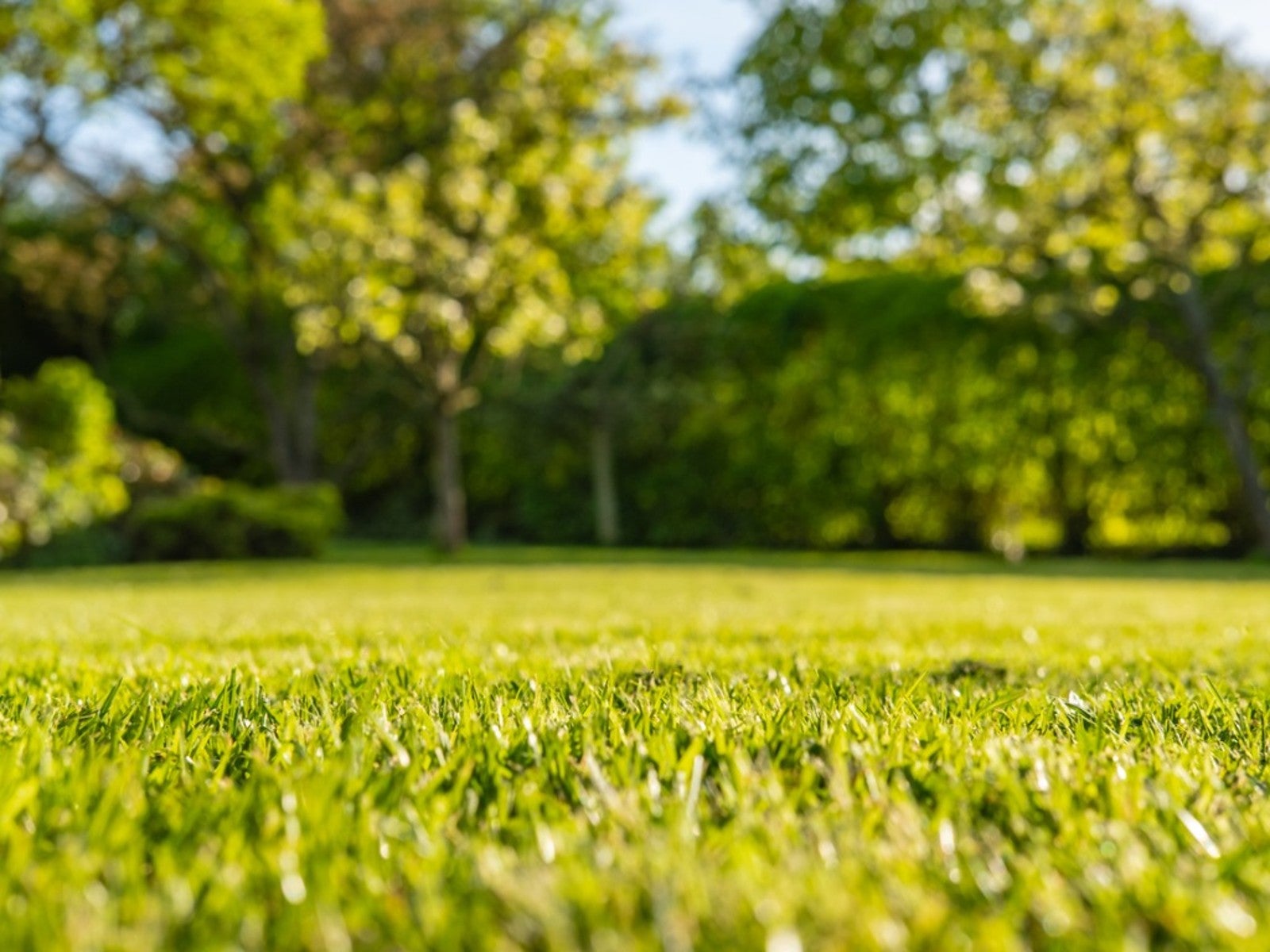Organic Lawn Care Advice


A turf lawn isn’t the most environmentally-friendly type of landscaping. It is a non-native monoculture that doesn’t generally support local wildlife. However, organic lawn care can make your yard less damaging to the local ecosystem.
About Natural Lawn Care
There are no official standards for what constitutes organic practices for managing a lawn. Generally, it means using methods that are more environmentally-friendly and sustainable.
This might include choosing an organic fertilizer over a synthetic product, watering less often, choosing low-maintenance grass types, and limiting or avoiding pesticides.
What organic or natural care does not mean is simply ignoring the lawn. Leaving it alone except to mow does not necessarily make your lawn better for the environment. Neglect can lead to bare soil patches, runoff, and erosion.
Using an Organic Fertilizer for the Lawn
One of the best things you can do is stop using synthetic fertilizer on your lawn. These products create significant runoff of nitrogen and phosphorus into bodies of water, leading to algal blooms. This is terrible for aquatic wildlife. Synthetic fertilizer can also harm animals, pets, and children who spend time in the grass.
Organic lawn fertilizer is a better option and will create a healthier lawn. Use products like compost or earthworm castings, which are natural. For the best results, test your soil first. This will give you a better idea of what it actually needs. This will tell you if you need specific amendments or a good general organic fertilizer.
Other Natural Lawn Care Products and Tips
Changing how you fertilize the lawn is a big step. Here are some more things you can do, and products to use, that will make your lawn more natural:
Sign up for the Gardening Know How newsletter today and receive a free copy of our e-book "How to Grow Delicious Tomatoes".
- Grow the right grass. Choose a grass type that is best for your local ecosystem. Turf-type tall fescue is among the best choices for an organic lawn. It tolerates a lot of poor conditions and requires less maintenance and fewer products than other types.
- Avoid herbicides. Learn to live with some weeds in the garden. Clover, for instance, actually increases beneficial nitrogen in the soil. For weeds you really don’t want, hand pull or focus on prevention. A strong, natural lawn will crowd out weeds.
- Mow high. When you cut the grass, mow high, meaning cutting off no more than the top-third of the blades. This keeps the grass healthier. It also helps shade out weeds.
- Water sparingly. Water your grass deeply and infrequently for the best results. During mid-summer, when temperatures soar, your grass should go dormant. This is natural, so resist the urge to water it.
- Mulch leaves in fall. Instead of raking up and collecting fall leaves, run them over with the mower. Mulch them up into small pieces when dry, so that they will distribute evenly in the lawn and break down more quickly.
- Use natural pesticides. Look for organic pesticides to handle any insect problems. For instance, beneficial nematodes can help control grub populations.

Mary Ellen Ellis has been gardening for over 20 years. With degrees in Chemistry and Biology, Mary Ellen's specialties are flowers, native plants, and herbs.